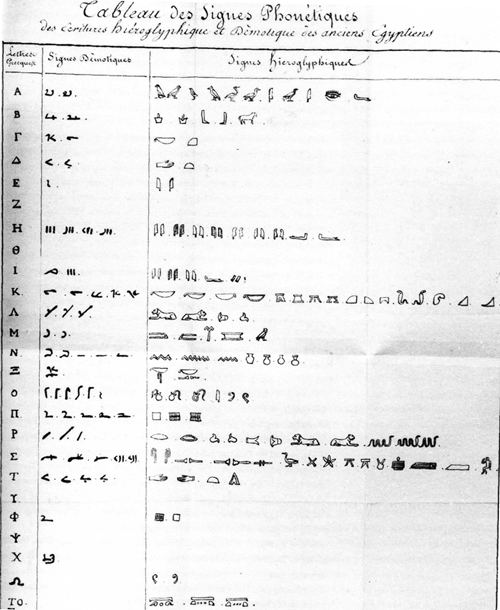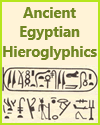Jean François Champollion, born on December 23, 1790, in Figeac, France, is celebrated as the father of Egyptology for his groundbreaking work in deciphering Egyptian hieroglyphs. His passion for languages and ancient scripts began at an early age, encouraged by his older brother Jacques-Joseph. Champollion's prodigious talent led him to study at the École Spéciale des Langues Orientales in Paris, where he excelled in multiple languages, including Latin, Greek, Hebrew, Arabic, and Coptic.
 Champollion's most significant achievement came with his decipherment of the Rosetta Stone, a granodiorite stele inscribed with the same text in three scripts: Greek, Demotic, and hieroglyphic. Discovered in 1799 by French soldiers in Egypt, the Rosetta Stone became the key to unlocking the long-lost language of ancient Egypt. Building on the work of previous scholars, such as Thomas Young, who had identified some phonetic elements in the Demotic and hieroglyphic texts, Champollion made the crucial breakthrough.
Champollion's most significant achievement came with his decipherment of the Rosetta Stone, a granodiorite stele inscribed with the same text in three scripts: Greek, Demotic, and hieroglyphic. Discovered in 1799 by French soldiers in Egypt, the Rosetta Stone became the key to unlocking the long-lost language of ancient Egypt. Building on the work of previous scholars, such as Thomas Young, who had identified some phonetic elements in the Demotic and hieroglyphic texts, Champollion made the crucial breakthrough.
In 1822, after years of meticulous study, Champollion announced his success in deciphering the hieroglyphs. He demonstrated that the hieroglyphic script was a combination of phonetic and ideographic elements. His work, Lettre à M. Dacier, outlined the principles of his decipherment and established him as the foremost authority on ancient Egyptian writing.
Champollion's contributions extended beyond the Rosetta Stone. He made significant strides in understanding the grammar and syntax of the ancient Egyptian language, enabling the translation of countless inscriptions and texts. His travels to Egypt in 1828-1829 further enriched his knowledge, allowing him to study monuments and inscriptions firsthand.
Jean François Champollion's decipherment of hieroglyphs opened the door to a deeper understanding of ancient Egyptian civilization, its history, culture, and religion. His work laid the foundation for modern Egyptology, and his legacy continues to influence scholars and enthusiasts of ancient history. Champollion passed away on March 4, 1832, but his achievements endure as a testament to his remarkable intellect and dedication.
|
 Champollion's most significant achievement came with his decipherment of the Rosetta Stone, a granodiorite stele inscribed with the same text in three scripts: Greek, Demotic, and hieroglyphic. Discovered in 1799 by French soldiers in Egypt, the Rosetta Stone became the key to unlocking the long-lost language of ancient Egypt. Building on the work of previous scholars, such as Thomas Young, who had identified some phonetic elements in the Demotic and hieroglyphic texts, Champollion made the crucial breakthrough.
Champollion's most significant achievement came with his decipherment of the Rosetta Stone, a granodiorite stele inscribed with the same text in three scripts: Greek, Demotic, and hieroglyphic. Discovered in 1799 by French soldiers in Egypt, the Rosetta Stone became the key to unlocking the long-lost language of ancient Egypt. Building on the work of previous scholars, such as Thomas Young, who had identified some phonetic elements in the Demotic and hieroglyphic texts, Champollion made the crucial breakthrough. 









